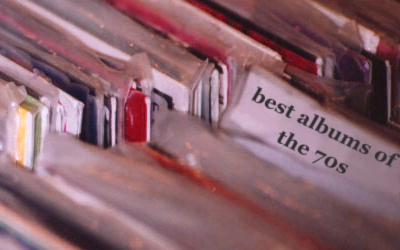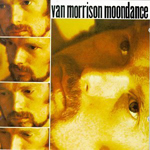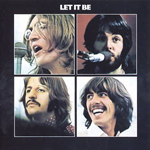Treble’s Best Albums of the 70s: Part One

Last year, Treble made a historical visit back to the Golden Age of Rock `n’ Roll with our Best of the 1960s feature, one so successful (and fun, too, I might add) that we took it one decade further this year with our compilation of our 100 favorite albums of the 1970s. Rather than do it as a straight 100 list, we sectioned off our ten favorites from each year. We felt it was more important to focus on the decade year-by-year. But before we get to the music, it’s important to get some perspective on the decade in which both disco and punk were born.
When 1970 had hit, the Vietnam war was still raging. The hippie movement was dying down but things weren’t necessarily getting any better. And as such, the ’70s, in many societies, are viewed as a transitional period. Not as revolutionary as the ’60s, not as conservative as the ’80s, the polyester decade was an odd period of time for the world.
Before technology had begun to boom in the ’80s and ’90s, the spark was lit in the ’70s, with the earliest forms of personal computers, calculators, home video game systems, Pong, and the beginning of Microsoft. Even rotary telephones had been made obsolete with the touch-tone system. Meanwhile, space exploration expanded, Apollo missions to the moon continuing, as well as unmanned spacecraft being sent to Mars and Venus. The space shuttle was also developed during this time, but it wasn’t actually launched until 1981.
Around the world, the political and social climate was still pretty volatile after all that went on in the years prior. It was in 1972 when we learned of Watergate, which eventually led to President Richard Nixon’s resignation shortly thereafter. In the United Kingdom, Margaret Thatcher was elected the first female prime minister. In Spain, dictator Francisco Franco died, opening the gates for the first established democracy in the country. Cambodian leader Pol Pot was ousted by the Vietnamese after the Khmer Rouge was responsible for the deaths of nearly 1.7 million people through execution, starvation or forced labor. And Patty Hearst was taken hostage by the Symbionese Liberation Army and made one of their own.
Clearly, things had gotten strange in the 1970s, and yet the art that was created was beyond compare. In film, George Lucas’ Star Wars premiered in 1977, while Spielberg, Scorsese and Coppola had also debuted with some of their greatest films, including Jaws, Taxi Driver and The Godfather, respectively. But things changed dramatically in the world of music, possibly more so than any other art form at the time. The singer-songwriter movement emerged after the more politically-conscious acts of the previous decade began to wane. Progressive rock also made headway, Pink Floyd, Genesis and Rush leading the way. Then came disco, which saw a backlash shortly thereafter. And two of the biggest contributions to the world of music also made their debut in the ’70s: punk and hip-hop.
With such a powerful change in the world of music, the 1970s make for a fascinating decade, one that spawned hundreds of great albums. We created a list of 100, 10 of which we will be posting each day for the next two weeks. Treble will, of course, do this in a chronological fashion, starting with 1970. We couldn’t, however, include everything and many of our own personal favorites were ultimately cut: James Taylor, Janis Joplin, The Man Who Sold the World, Caetano Veloso, Mott the Hoople, Elton John, Billy Joel, Paul Simon, News of the World, The Damned, The Human League, Gary Numan, X-Ray Spex, In the City, Some Girls, Willie Nelson, Van Halen, Michael Jackson, Al Green, The Beach Boys, Paris 1919, Sparks, AC/DC, Magazine, Darkness on the Edge of Town, Swell Maps, The Pop Group, Lodger and The Slits.
Without further adieu, the list, part one:
1970
 10. Jimi Hendrix — Band of Gypsys (Capitol)
10. Jimi Hendrix — Band of Gypsys (Capitol)
Throughout history, only a few live albums have ever made as many waves as their studio counterparts. Johnny Cash’s Live at San Quentin revealed the intensity and tension of the country great’s live performance. Jeff Buckley’s Mystery White Boy let us hear what could have been. And Jimi Hendrix’s Band of Gypsys was the only live performance Hendrix ever officially released, as a contractual way out, no less. It was the last of Hendrix’s releases before his death, and let us hear a man and his band (albeit short lived) at their peak one New Year’s Eve. Listening to the Gypsys’ soulful blues showed a new side of Hendrix’s rockin’ sound, while also providing countless new uses for effects pedals. Just listen to “Machine Gun.” The man was doing all that crazy guitar acrobatics shit long before Tom Morello tried to pass it off as his own. — Jeff Terich
 9. Van Morrison — Moondance (Warner Bros.)
9. Van Morrison — Moondance (Warner Bros.)
In today’s music scene you can get away with buying just one song, ala iTunes. Being obsessed with music myself, I understand this desire. But when it comes to Moondance, you need the whole album. With subjects such as the awe and innocence of youth in the first track “And it Stoned Me,” to the thinly veiled sexuality of the title track, Van Morrison’s buttery croon and equally guttural vocals leave no facet of the human condition unexplored. — Nicole Grotepas
 8. Simon & Garfunkel — Bridge Over Troubled Water (Columbia)
8. Simon & Garfunkel — Bridge Over Troubled Water (Columbia)
Bridge Over Troubled Water is a masterpiece of pop, of songwriting, of grief and youth and everything else Paul Simon and Art Garfunkel made it their business to write about. It’s their final masterpiece, too, and aptly lays out the fullest spectrum of their musical development throughout the ’60s. You can hear the internationalism of New York on this record, in a way—the teeming, fighting voices, coming from corners of rooms and out of lonely subway stations, of every shape and tone, and yet all distinctly the work of S&G. — Andrew Good
 7. George Harrison — All Things Must Pass (Apple)
7. George Harrison — All Things Must Pass (Apple)
George Harrison is an amazingly talented songwriter / guitarist / spiritual being, and All Things Must Pass is one of those albums that come along once in a lifetime. Near every song is a timeless piece of art, holding up just as well today as it did then. Usually when one listens to songs of the 70’s, there is a sense of the distant past, bad clothes, hair and styles. I’ve heard “My Sweet Lord” and “Wah-Wah” on radios in shops and delis at various times and always felt that the songs were timeless. I can listen to Harrison’s twanging lead guitar and mellow voice no matter what mood I’m in, and somehow he makes it all seem brighter. — Terrance Terich
![]() 6. John Lennon — Plastic Ono Band (Apple)
6. John Lennon — Plastic Ono Band (Apple)
In the shadow of the Beatles’ disintegration, John and Yoko spent four months at Arthur Janov’s Primal Institute, during which time John wrote an album’s worth of personal, emotionally direct songs. Co-produced with Phil Spector (showing severe restraint), The Plastic Ono Band reveals a Lennon sifting through the past that has accompanied him through the many phases of Beatledom, and confronting, be it through hushed introspection or angry condemnation, the many soporifics by which he has been tempted. — Tyler Parks
 5. The Stooges — Fun House (Elektra)
5. The Stooges — Fun House (Elektra)
The Stooges’ debut album, though a loud and burly one, didn’t truly capture the untamed fury of the Detroit band’s performances. So to truly make an album as brutal and painful as Fun House, they had to ditch previous producer John Cale and take it back to rock `n’ roll’s roots, asking Kingsmen keyboardist Don Gallucci to fill-in instead. Like peas in a sloppy, noisy pod, The Stooges and Gallucci clicked, creating as fierce and merciless a record as anyone could have thought possible. — Jeff Terich
 4. The Velvet Underground — Loaded (Cotillion-Atlantic)
4. The Velvet Underground — Loaded (Cotillion-Atlantic)
The story goes that a well-meaning label exec requested Lou Reed, who was pointman for the band at that point, to create an album “loaded with hits.” In essence, it’s everything the Velvets first set out not to be—conventional, bright pop-rock that would cruise easily on the AM stations. Happy though this may be, it was no mere accident. John Cale left after White Light/White Heat, and without his raucous presence, Reed’s laser-sight introspection took over the band’s focus. Their third, self-titled album seemed to provide ample space for his tender balladeering and gloomy navel-gazing; by 1970, Reed was ready to rock out again, and rock out he did. — Andrew Good
 3.The Beatles — Let It Be (Apple)
3.The Beatles — Let It Be (Apple)
Listening to the Phil Spector-produced Let it Be, one inevitably wonders about what could have been. “Two of Us,” the bare Lennon-McCartney opener, is free from walls of sound and, with its lyrics of homecoming, point toward the original intent of the Get Back sessions. The chorus of “I Me Mine,” and to some extent “One After 909,” also achieve some of that in-studio rawness. Yet sadly, the possibilities of the throwback Get Back album are lost. Even 2003’s Let it Be… Naked, as great as McCartney’s denuded version is, can’t exactly match what the band might have produced had death and business and creative differences not split them apart. Taking this swansong as is, there are still moments of grace and beauty becoming of a Beatles release that cannot be denied. — Hubert Vigilla
 2.Nick Drake — Bryter Layter (Island)
2.Nick Drake — Bryter Layter (Island)
The follow-up to Drake’s 1969 debut Five Leaves Left is a further exercise in the power of subtlety. Joined by members of Fairport Convention, including Richard Thompson, Drake composes some of the most introspective singer/songwriter material of that or any time in songs like “At the Chime of a City Clock,” “Fly,” and “One of These Things First.” Fans of Elliott Smith and Belle and Sebastian, it’s only a matter of time until you become obsessed with Drake, that is if you aren’t already. — Terrance Terich
 1.Neil Young — After the Gold Rush (Reprise)
1.Neil Young — After the Gold Rush (Reprise)
By 1970, Neil Young had already achieved great success with Buffalo Springfield and Crosby, Stills, Nash and Young. But it wasn’t until After the Gold Rush that he truly began to show off his songwriting talents. Short on length, but long on great songs, it was Young’s first perfect album, one that has remained both fresh and classic for 35 years. — Jeff Terich

